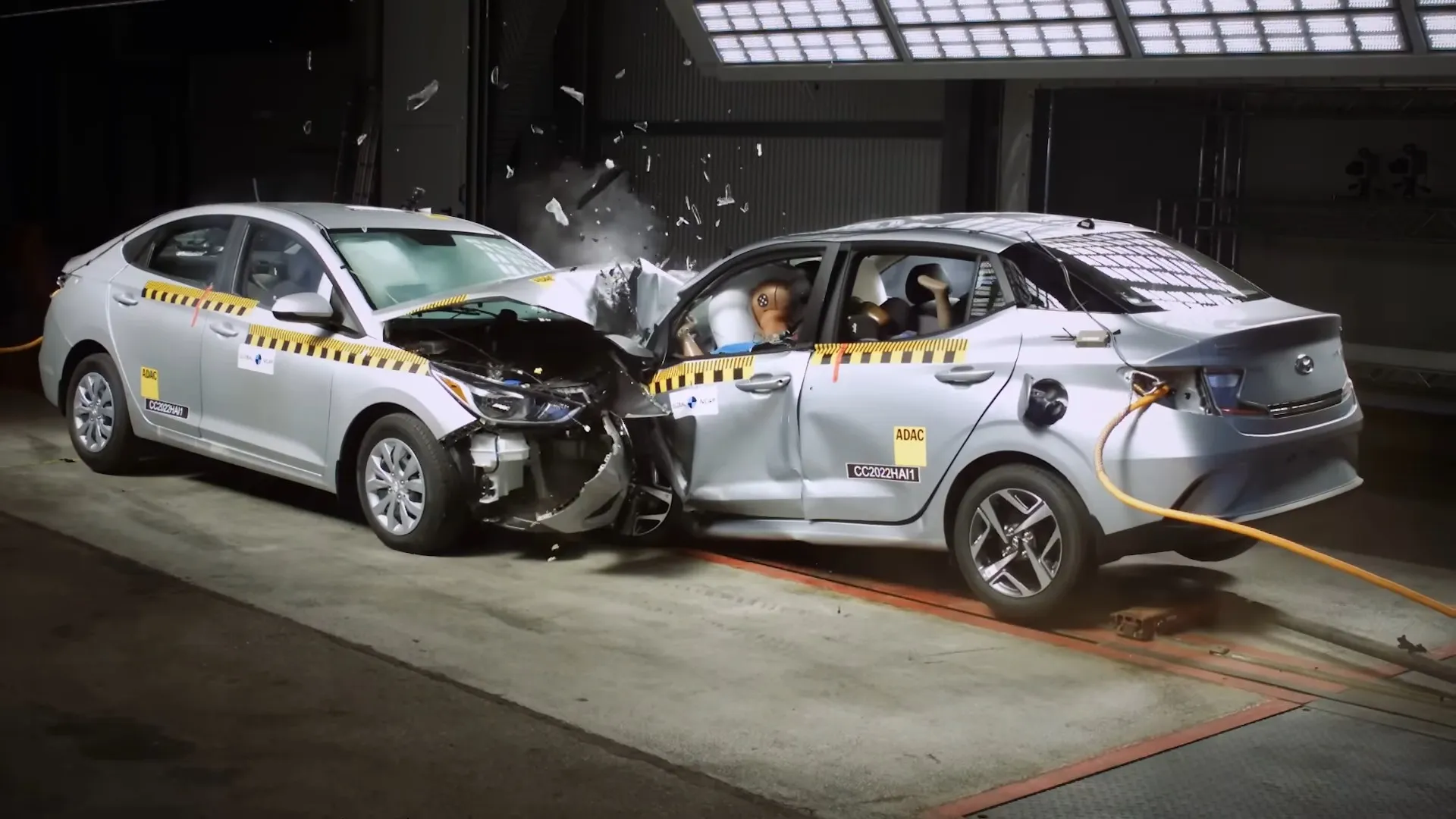JIS D5716 Rear Impact Crash Test
The JIS D5716 Rear Impact Crash Test is a critical component of automotive safety standards. This test evaluates the structural integrity and occupant protection capabilities of vehicles in rear collision scenarios, which are common in many real-world driving situations. Compliance with this standard ensures that vehicles meet stringent quality control benchmarks, thereby enhancing public safety.
The test involves subjecting the vehicle to a controlled rear impact at high speeds using a sled system. The speed and energy absorption characteristics of the test are specified by JIS D5716, which means precise parameters must be adhered to for accurate results. This ensures that all participants in the automotive industry adhere to the same rigorous testing protocols.
The primary objective is to assess how well a vehicle can withstand rear impacts while minimizing injury risk to occupants. The test focuses on several key aspects including the structural integrity of the vehicle, energy absorption by the crumple zones, and the effectiveness of seatbelt systems and airbags in mitigating occupant injuries.
The methodology involves placing a sled with a mass equivalent to that of a typical rear-end collision scenario into motion. The sled collides with the rear end of the vehicle under test (VUT). Sensors within the sled and VUT capture data on deceleration, energy absorption, and deformation patterns during impact.
Following the crash, detailed inspections are conducted to evaluate the extent of structural damage, including bent or broken components. The integrity of safety features such as seatbelts and airbags is also assessed. This comprehensive evaluation helps manufacturers identify areas for improvement in their vehicle designs.
The results from this test are crucial for ensuring that vehicles comply with international standards like JIS D5716. Compliance not only enhances consumer confidence but also ensures regulatory compliance, which can be a significant factor in market entry and sales.
Why It Matters
The importance of the JIS D5716 Rear Impact Crash Test cannot be overstated. By simulating real-world collision scenarios, this test helps manufacturers identify potential weaknesses in their vehicle designs that could lead to increased injury risks for occupants. The data obtained from these tests is invaluable for continuous improvement and innovation in automotive safety.
Moreover, compliance with JIS D5716 is a mandatory requirement for vehicles intended for the Japanese market. This ensures that all vehicles meet the highest standards of safety, which is essential for consumer trust and market acceptance.
The test also plays a pivotal role in research and development efforts by providing real-world data on how vehicles perform under specific conditions. This information can be used to refine existing designs or develop entirely new models with enhanced safety features.
- Enhanced Safety: Ensures that vehicles are designed to protect occupants in rear impacts, reducing the risk of injury.
- Regulatory Compliance: Necessary for market entry and sales in Japan, ensuring compliance with international standards.
- Innovation: Provides valuable data for R&D efforts aimed at improving vehicle safety features.
Applied Standards
The JIS D5716 Rear Impact Crash Test is based on Japanese Industrial Standard (JIS) specifications. This standard defines the methodology, parameters, and acceptance criteria for conducting rear impact crash tests on vehicles.
The test involves a sled-mounted mass impacting the rear of the vehicle under test at specified velocities. The sled's speed and energy absorption characteristics are critical to achieving accurate and reliable results. The test also includes detailed inspection procedures for evaluating structural integrity, energy absorption performance, and occupant protection measures.
Compliance with JIS D5716 ensures that vehicles meet the stringent safety requirements set by Japanese authorities. This is particularly important for manufacturers targeting the Japanese market, where compliance is mandatory for vehicle sales.
Customer Impact and Satisfaction
- Better Safety Performance: Customers receive vehicles that are rigorously tested to ensure they can withstand rear impacts effectively, reducing the risk of injury during accidents.
- Increased Trust: Compliance with JIS D5716 enhances consumer confidence in vehicle safety and reliability.
- Market Access: Ensures vehicles meet regulatory requirements for market entry in Japan, broadening customer reach.
The data from these tests is used by manufacturers to identify areas for improvement. This continuous process of refinement ensures that each new vehicle model surpasses the previous one in terms of safety features and performance. Customer satisfaction is directly correlated with the level of safety provided, making JIS D5716 testing a cornerstone of automotive quality control.





